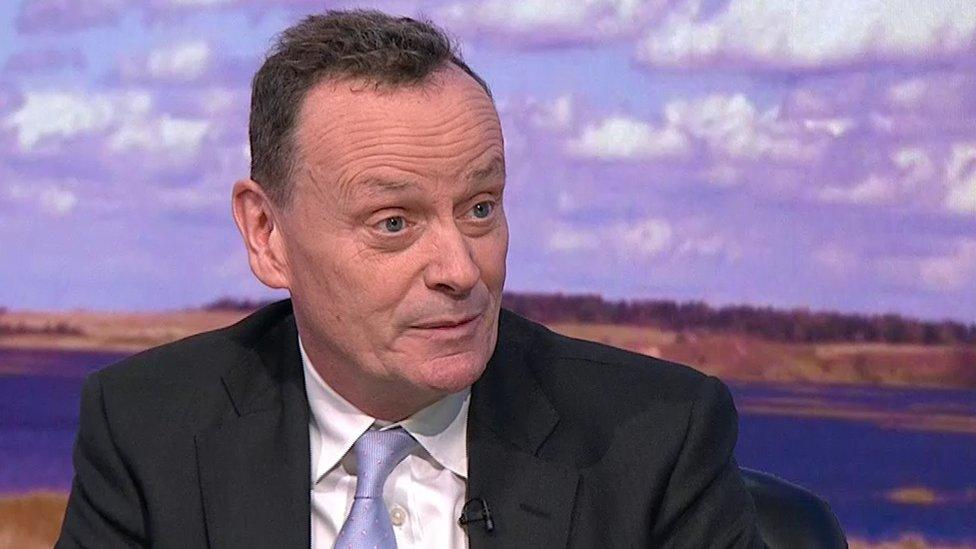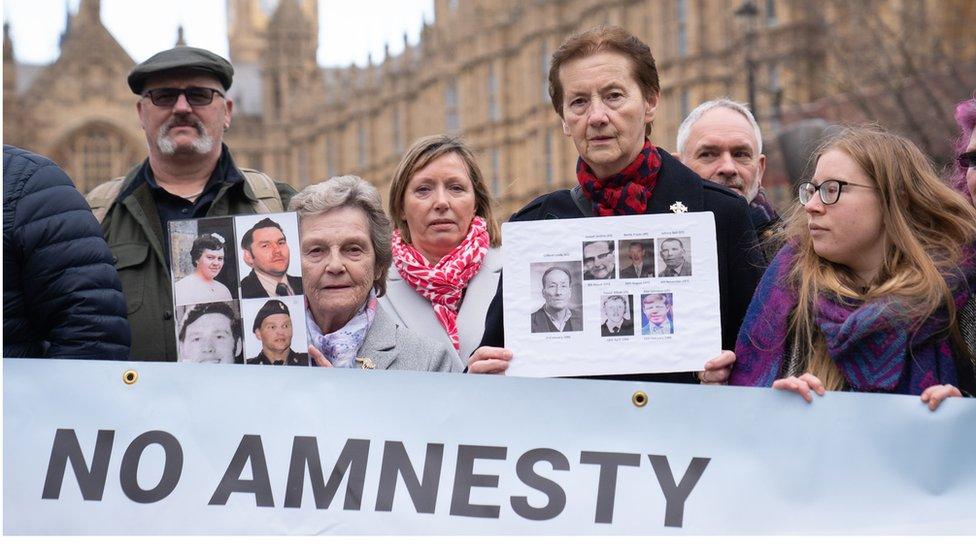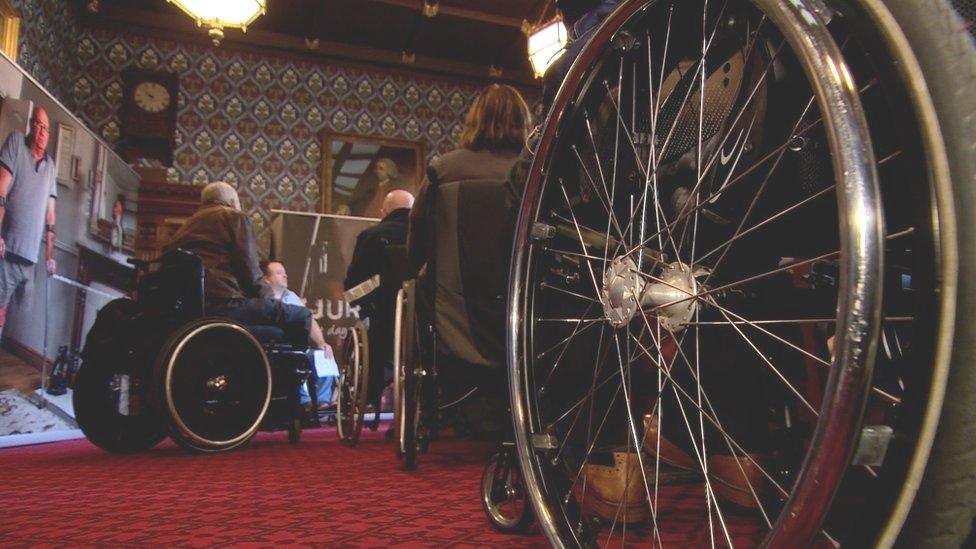Victims' commissioner Ian Jeffers not 'abandoning ship'
- Published

The victims commissioner Ian Jeffers, who is to step down from the role in Northern Ireland, has rejected claims he has "abandoned ship".
Victims' group Relatives for Justice (RfJ) claimed online that there was an ongoing "shut down on victims' rights", external.
Mr Jeffers, who was hired in 2022 on a four-year-contract, is to become the chief executive of peace-building charity Co-operation Ireland.
He said he was going where there was an "opportunity to make a difference".
"I can assure them I am not abandoning ship," he told theBBC's Evening Extra programme.
"The commission plays one role with victims and survivors and there are many others on it," he said.
"Relatives for Justice, amongst others appreciate that. They play a considerably important role as do people like SEFF and Wave and other organisations so there are many of us out there all with the same thing in mind - to ensure the voice of victims and survivors is heard and that we advocate for them."
"I believe we had a positive impact for victims and survivors in my short time," he said.
He said existing staff would be able to drive change "with or without a commissioner".
It is understood more than 100 people applied for the position.
It was announced in September that its current chief executive Peter Sheridan is to leave in December.
He will take up a new role with the government's new Troubles legacy body.
Mr Sheridan - who organised the handshake between Queen Elizabeth II and former IRA commander and then Deputy First Minister Martin McGuinness in 2012 - will lead a team of investigators who will have the same powers as a police constable in reviewing legacy cases.
His replacement at Co-operation Ireland, Mr Jeffers, is an outspoken critic of the government's new plans for dealing with legacy cases.
Mr Jeffers is a former chief executive of the Prince's Trust in Northern Ireland.

Mr Jeffers has been an outspoken critic of the government's new plans for dealing with legacy cases
Speaking about his new role, Mr Jeffers said: "It is an exciting opportunity to shape a better society by addressing legacy issues and promoting collaborative dialogue. I would also like to express my best wishes to the outgoing CEO Peter Sheridan."
Mr Sheridan, who was appointed to the role in 2008, said: "I believed that the peace process attracted the best of people and was Co-operation Ireland a perfect example of that. I wish Ian Jeffers the very best in leading a remarkable organisation."
Mr Jeffers said he believed he could "do more" in Cooperation Ireland for victims and survivors than he would as commissioner.
He said his new role would be more about "doing" than advising.
However he added that it had been a "massive privilege" to advocate for victims and survivors.
'Mixed emotions'
He said he felt "mixed emotions".
He added: "I took up the post of commissioner with the sole aim of making a difference for victims, survivors and our society more broadly, and I can honestly say it has been an honour, a privilege and - at times - a huge frustration.
He said the government's Legacy Act,which became law in September, was a source of "frustration".
"Government gave an impression of not listening to victims and survivors," he said.
"We now have to work harder to ensure we do address the legacy of the past."
He added: "There is little in Northern Ireland society that cannot be linked in some way to the legacy of our past; our divisions, our government and the many transgenerational issues we continue to face.
"It is unfortunate that my tenure was in the context of having no devolved administration in Northern Ireland but throughout this challenge, I always found great hope through the many people bringing positive drive to carve a better way forward. "
He was appointed to the role of commissioner for victims and survivors last year before the Stormont executive collapsed. The post has a salary of £75,000 a year.
It is unclear exactly how a replacement in the role will be appointed in the absence of an executive.
In 2019 the then Secretary of State, Julian Smith, re-appointed the previous victims commissioner, Judith Thompson, in the absence of a functioning executive.
On Friday a spokesperson for the Executive Office said that under current legislation a new commissioner is appointed jointly by the first minister and deputy first minister.
"In the absence of ministers, we will consider the options available to us for making this appointment," they added.
Related topics
- Published5 September 2023

- Published3 February 2022

- Published14 September 2023
